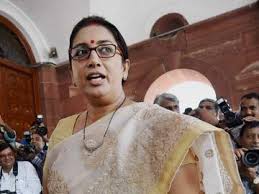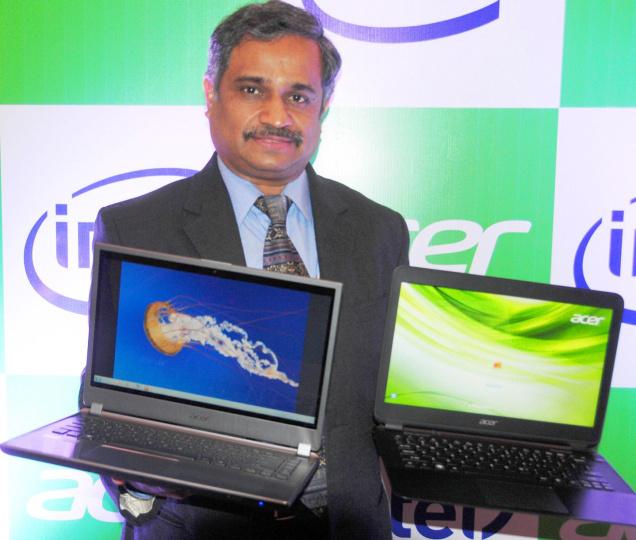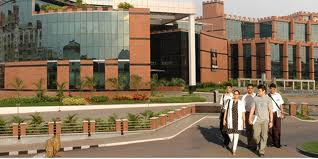 The newly sworn-in Union HRD Minister Smriti Irani has pledged to fulfill the promises made in the party’s manifesto, starting with looking for ways to enhance public spending on higher education from the present 3.8 percent to 6 percent of GDP. She has also met senior officials and asked for detailed notes on various education-related schemes run by the ministry. Besides, Irani is also planning to set up a comprehensive national e-library and a central university on Himalayan technology, in line with the party’s manifesto. Undoubtedly, her steps augur well in terms of a holistic approach to improve both quality and reach of education in the country.
The newly sworn-in Union HRD Minister Smriti Irani has pledged to fulfill the promises made in the party’s manifesto, starting with looking for ways to enhance public spending on higher education from the present 3.8 percent to 6 percent of GDP. She has also met senior officials and asked for detailed notes on various education-related schemes run by the ministry. Besides, Irani is also planning to set up a comprehensive national e-library and a central university on Himalayan technology, in line with the party’s manifesto. Undoubtedly, her steps augur well in terms of a holistic approach to improve both quality and reach of education in the country.
With the government laying special emphasis on higher education, the digitalLEARNING also decided to do its bit by assessing the state of an improtant branch of higher education – Engineering – through the length and breadth of India. And, having completed the massive exercise, we are here with the second edition of our Engineering Ranking special issue. This, we are sure, will help you segregate the good institutions from the not-so-good ones and also get a clearer picture of this segment of higher education.
This issue is in continuation of the huge success of Engineering Ranking Issue of 2013, where we ranked the top engineering institutions in the country. A total of 250 engineering institutions have been ranked. The best thing about our survey is that apart from listing the institutions that are already at the top, it also tries to discover other ‘Promising Institutions’ that are headed towards new highs. This edition also has a special feature on the changing face of Engineering Education, along with the lead feature on Education Abroad, covering various opportunities and challenges for Indian students looking to build a global career.
We are also proud to announce the fourth edition of World Education Summit (WES) 2014 (http://wes.eletsonline.com/), scheduled for August 7-8, 2014, New Delhi. This will carry forward the incredible success of the 2013 Summit. This year, the Summit will highlight innovations and best practices in the education sector. The Summit will see coming together of ministers, education policymakers from various countries, stakeholders from civil society organisations, educationists, academia, corporate houses, international and national developmental organisations, donor agencies and decision-makers from the industry. It will aim at enriching global efforts towards an inclusive education and analysing the role of governments in the development and implementation of educational policies.
We hope to have you at this year’s WES, where conferences, exhibitions, workshops and the award ceremony will provide a wonderful opportunity to stakeholders in the field of education, all over the world, to create opportunities of progress at all levels, namely – global, national, and regional.
I invite all to join at this platform and be a part of the resurgence in the education sector.
Dr Ravi Gupta
Editor-in-Chief
Ravi.Gupta@elets.in





























